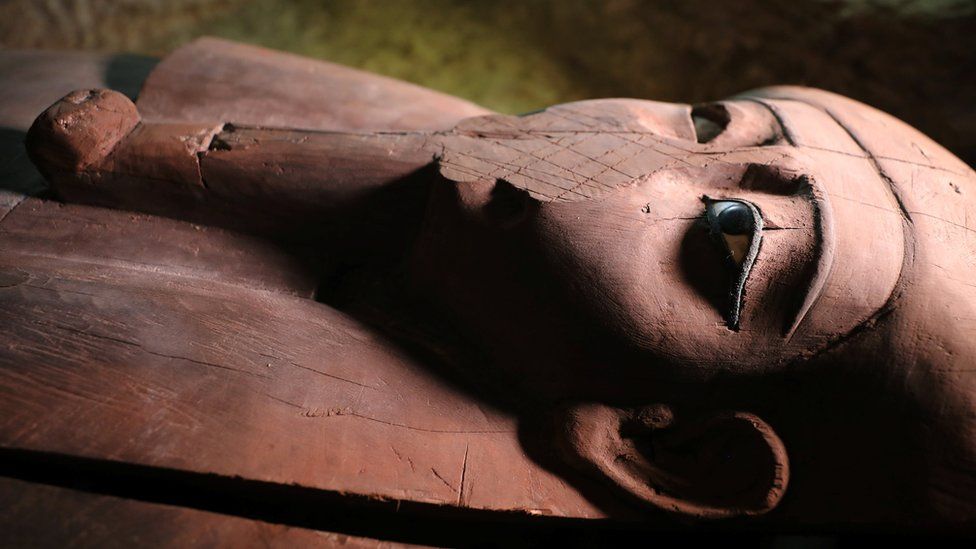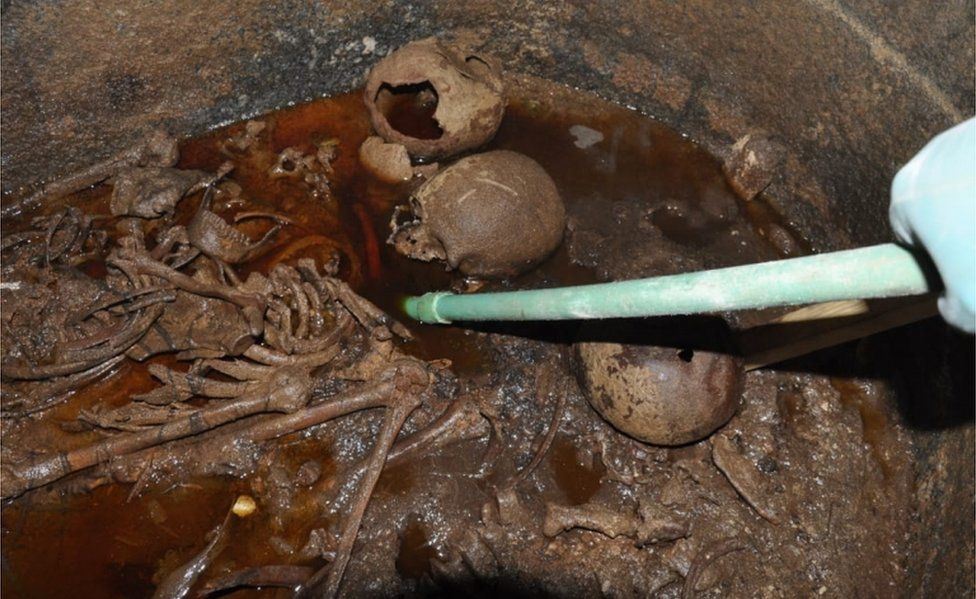ARCHAEOLOGISTS are poised to open a mysterious sarcophagus dug up in the city where Alexander the Great may have been buried.

Archaeologists are set to open a mysterious sarcophagus in Alexandria (Image: EPA)
The black granite sarcophagus, which is 9.8ft (3m) long, was unearthed in the Egyptian port city of Alexandria earlier this month.

Historians believe the relic dates dates back to the Ptolemaic period, which covers the time between 305BC and 30BC.
The tomb, discovered 16ft (4.8m) below the ground during construction work, is the largest ever sarcophagus found in Alexandria.
A layer of mortar sits between its lid and the body of the coffin, suggesting it has been sealed for more than 2,000 years.
The sarcophagus was discovered alongside a carved alabaster bus of a man which may depict to the tomb’s owner.
Historians said the relic likely belonged to a nobleman rather than a king.
However, the discovery will give hope to archaeologists trying to uncover the long-lost tomb of Alexander the Great.

Ayman Ashmawy, of Egypt’s ministry of antiquities, said: “We are hoping this tomb may belong to one of the high dignitaries of the period.
The relic dates back to the Ptolemaic period, according to historians (Image: EPA)
“The alabaster head is likely that of a nobleman in Alexandria.
“When we open the sarcophagus, we hope to find objects inside that are intact, which will help us to identify this person and their position.

“It’s risky to open it directly, we need to prepare. It’s difficult to move it intact and open it in a museum.
“It’s five metres underground and the whole thing weighs over 30 tonnes. The lid alone is 15 tonnes.”
/cdn.vox-cdn.com/uploads/chorus_asset/file/11720379/sarcophagus.jpg)
A team of engineers will visit the site, in northern Egypt, to remove the sarcophagus lid with heavy-lifting equipment.
Mummification and restoration experts will then ensure the tomb’s contents are preserved.

Leading Egyptologist Zahi Hawass told the Telegraph: “It should belong to someone important because it is a granite sarcophagus.
“For someone to bring granite from Aswan, 600 miles south of Alexandria, means he would have had to have been rich.”